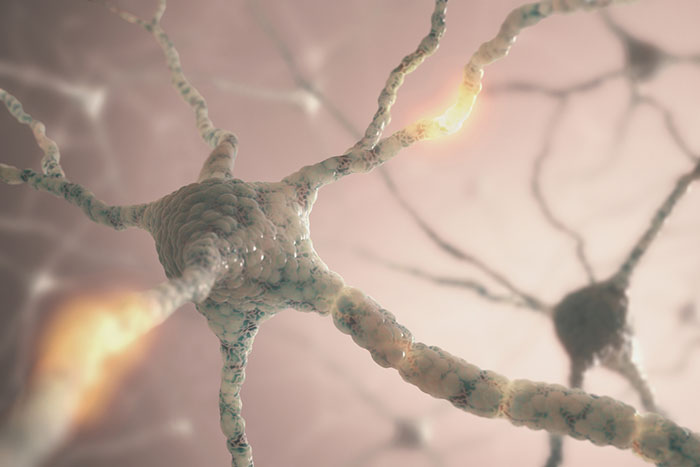Fountain (HOWEVER / HuffPost).-
We know that too much sugar is bad for your waistline and heart health, but now there is evidence that high levels of consumption of this ingredient may also have a negative effect on the brain, from cognitive function to the psychological well-being.
While sugar does not imply any concern consumed in small amounts, Most people just go far beyond the recommended limits. Sweet things, it is also known by names such as glucose, fructose, honey and corn syrup, It is in the 74 percent of packaged foods in supermarkets. And while the World Health Organization (WHO) recommends only 5 percent of the daily calorie intake comes from sugar, a typical diet in a developed country (or Mexico) It is made up of 13 percent calories sweetener.
"Many Americans eat about five times the recommended amount of sugar you should eat", dijo al Washington Post el profesor de medicina del Hospital de la Universidad de Georgetown.
Then, las cosas que deberías saber cómo el consumo excesivo de azúcar puede causar estragos en el cerebro.
Creates a vicious circle of intense cravings
When a person consumes sugar, as any meal, activated taste receptors of the tongue. Then, sends signals to the brain, que activan circuitos de recompensa preparando a una oleada de hormonas para sentirse bien, to go out. "Hijacks the brain's reward circuit" sugar, explica el neurocientífico Jordan Gaines Lewis. And while stimulating the brain's reward system with a piece of chocolate every now and then is pleasant and probably harmless, when it is too active and too often, We began having problems.
"Excessive activation of the reward system triggers a series of unfortunate events: loss of control, uncontrolled craving, and increased tolerance to sugar ", explica en un video de TED-Ed, la neurocientífica Nicole Avena.
In fact, Research has shown that the brains of obese children actually lights differently when tested sugar, reflecting a high response "food reward". This suggests that the brain circuitry may predispose these children to a life of intense sugar cravings.
Se deteriora la capacidad de memoria y aprendizaje
A study 2012 in rats, by researchers at the University of California, Los Angeles, found that a diet high in fructose (which is just another word for sugar) impairs learning and memory, therefore slows brain literally. The researchers found that rats who consumed excess fructose had damaged synaptic activity in the brain, which means that communication between neurons was affected.
Frequent consumption of sugar caused the rats developed a resistance to insulin, a hormone which controls the levels of blood sugar and regulates the functioning of brain cells. Insulin strengthens synaptic connections between neurons, helping them communicate better and therefore form strongest memories.
So when insulin levels in the brain fall as a result of excess sugar consumption, cognition may be affected.
"Insulin is important in the body to control blood sugar, but you can play a different role in the brain ", said Dr. Fernando Gomez-Pinilla, lead author of the research in a statement. "Our study shows that a diet high in fructose damages the brain, and body. This is something new. "
It can cause or contribute to depression and anxiety
If you've ever experienced low blood sugar, then you know that sudden spikes and drops in levels of insulin in the blood can cause symptoms such as irritability experience, humor changes, mental confusion and fatigue. This is because eating a donut loaded with sugar or drink a soda causes levels to spike and then fall into a tailspin. When the sugar level inevitably goes down, people may feel anxious, moody or depressed.
Foods high in sugar and carbohydrates can also mess with the neurotransmitters that help maintain stable mood. Consumption stimulates the release of the neurotransmitter serotonin, uplifting. The constant over-activation of these pathways of serotonin may drain the limited supplies and contribute to the symptoms of depression, according to Dr.. Given Kharrazian, experto en medicina funcional y autor de Why isn’t my brain working?
High levels of blood sugar chronically have also been linked to inflammation in the brain. And some research has suggested, neuroinflammation may be a possible cause of depression.
Young people may be particularly vulnerable to the effects of sugar on the mood. A recent study in adolescent mice, conducted by researchers at the Faculty of Medicine, Emory University, He found that a diet high in sugar contributes to depression and anxiety.
Research has also found that people who carry a standard American diet, meaning that, high in processed foods, which usually contain high amounts of saturated fat, sugar and salt, They are at greater risk of developing depression, compared to those with a diet rich in whole foods that are low in sugar.
It is a risk factor for cognitive impairment and dementia related to age
Un creciente cuerpo de investigación sugiere que una dieta rica en azúcar podría aumentar el riesgo de desarrollar la enfermedad de Alzheimer.
A study 2013 found that insulin resistance and glucose levels in the blood, hallmarks of diabetes, They are linked with increased risk of developing neurodegenerative diseases like Alzheimer. The research "provides further evidence that the brain is a target organ for the damage high blood sugar", dijo el endocrinólogo Medha Munshi al The New York Times.
Some researchers, even they have been referred to the Alzheimer as "type 3 diabetes", suggesting that diet may play a role in a person's risk of developing the disease.


This is what sugar does to your brain, Not only fattening. – http://t.co/nKjdkS1Zlv http://t.co/nrEJW4aL2q
RT @platanon: This is what sugar does to your brain, Not only fattening. – http://t.co/nKjdkS1Zlv http://t.co/nrEJW4aL2q